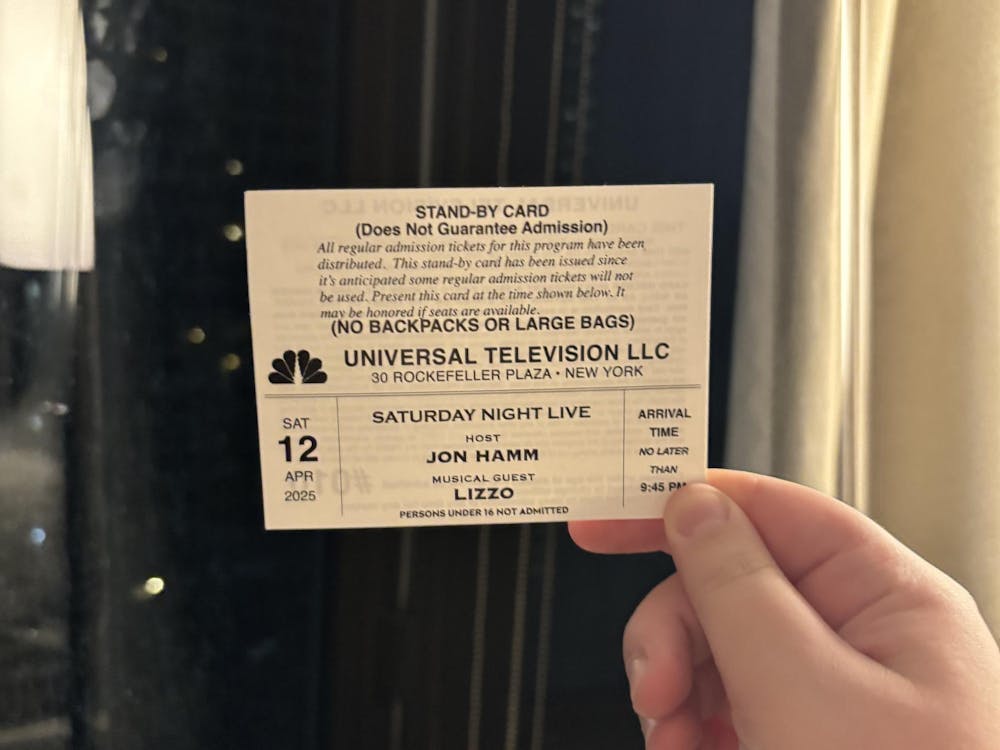Bjoerk may be from Iceland, but she wants us to believe she's from somewhere much farther away. Her aesthetic is anything but consistent; the only aspect tying together her alt-rock band The Sugarcubes, genre-hopping early solo projects and her more thematic and ambitious post-1997 projects is her unmistakable vocal delivery.
Starting with her masterpiece "Homogenic," the singer/songwriter/producer began crafting her identity as some sort of an interdimensional or extraterrestrial being. Her albums meld experimental electronic with avant-garde classical traditions, creating melodically and instrumentally challenging music which can prove emotionally rewarding for those willing to follow her otherworldly adventures.
"Utopia" is her latest in a long tradition of reinvention. It comes two years after "Vulnicura," a pained and darkly gorgeous album in which Bjoerk represented her break-up with long-term partner Matthew Barney as a gaping chest wound, her heart clawed out by the man to whom she gave access. Now, having turned 50 and found a new partner, Bjoerk chooses to go the opposite direction, starting off the next phase of her life with optimism and determination.
That new direction is perfectly encapsulated in lead single "The Gate," in which, as Bjoerk plainly states, "My healed chest wound/ Transformed into a gate/ Where I receive love from/ Where I give love from." Backed by the sparsest of synths which build and tease around the soaring chorus, the track is held aloft by Bjoerk's earnestness.
The second single, "Blissing Me," explores this fresh love even further, chronicling her feelings about getting to know and falling in love with someone by sharing songs. It begins with a basic vocal melody backed by stunning harp, but that background eventually devolves into rhythmic adventure while Bjoerk explores both her hesitancies and emotional highs.
Building off this emotional buoyancy, "Utopia" might go down as her spaciest and lightest record ever. Largely forgoing strings and using beats (supplied by close collaborator Arca) sparingly, these tracks largely build off little more than flute, harp, synth and, most importantly, Bjoerk's voice. The record is downright anti-gravity; where a normal track is tethered by rhythms and percussion beats, Bjoerk lets her melodies float in the cavernous expanses of her tracks. She doesn't seem bothered to force the instrumentals to play together, so there might be three slightly varied speeds going at once.
This will certainly turn off a large portion of listeners; if you've never dived into Bjoerk before, "Utopia" is not the album with which to do so. Even after multiple in-depth listens, it remains one of her most elusive and challenging works. But the most obvious pathway to this record lies in its lyrics, where Bjoerk is refreshingly and uncannily expressive. More so than almost any pop star working today, this otherwise alien songstress knows how to dive deep into the emotional, spiritual and philosophical complexities of mundane realities. Opening track "Arisen My Senses" is a five-minute examination of the full-bodied effect of a first kiss, and "Saint" personifies music itself as the titular figure, emotionally healing everyone she touches. "Tabula Rasa" applies the idea of beginning again with no preconceived traditions to the next generation ("Got the right to make your own fresh mistakes/ And not repeat others' failures").
The centerpiece of this LP is "Body Memory," a 10-minute epic which finds Bjoerk reflecting on many different aspects of her identity and how they have been reignited or revealed as she enters the next phase of her life. As the song runs its course, the jittery beats and flute arrangements ebb and flow, coming and going as they please. Through it all, Bjoerk cries for independence and strength, critiques the toxicity of the patriarchy and highlights the beauty of rural life in connection to one's soul.
One of "Utopia's" biggest flaws is its length. Even for those who find its strange melodies more captivating than frustrating, the nearly 80 minutes tend to drag, especially in the middle section. Bjoerk might create an interesting atmosphere, but she keeps the listeners inside it for too long without changing things up enough.
Still, this ends up being a minor qualm when considering the singer's achievements. Ten solo LPs in, Bjoerk is still firing on all cylinders, drawing from some strange world to create enthralling and wholly unique soundscapes. "Utopia" is a declaration of love that resonates despite -- or perhaps because of -- its otherworldliness.
4/5 stars
keelinst@miamioh.edu




